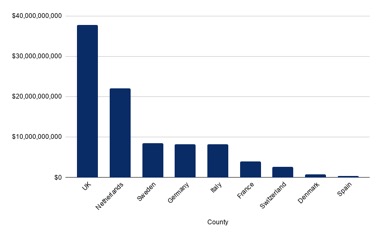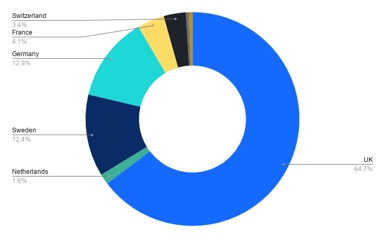
Ahead of FinovateFall Digital next week, we hear from Chad Hamblin, Global Industry Director of Financial Services at Microsoft, one of Finovate’s Gold Sponsors. Hamblin explores why success will come down to understanding and empathizing with your client. Dig a little deeper into this topic with Microsoft’s eBook on the topic: Reimagine the client experience in wealth management.
COVID-19 has put a strain on everyone. We’ve all navigated social isolation, uncertain investment projections, and remote work environments. Regardless of the experience, this time away has left a haze over individuals and organizations alike. We’re not just unsure what comes next, we’re questioning the very processes we’ve accepted to this point.
Investors are feeling a new tension that makes small pain points all the more obvious. Voice automation, fixed fees, commissions — what clients once accepted as the cost of doing business are suddenly under intense scrutiny. Clients aren’t obligated to trust a major firm with their financial future, and now they’re acting on the opportunity to move their money elsewhere.
So how can wealth management firms adapt their strategies (and identities) to regain that trust? It all starts with understanding the client.
A holistic experience
Over the years, many wealth firms operated under a one-size-fits-most model — if the client fell into a specific demographic, then the firm provided a specific portfolio. Empowered by the Digital Age and amplified by this pandemic, a growing number of modern clients are looking for a wealth management partner—someone willing to listen to their ambitions, dreams, and goals and recommend actions catered to their unique circumstances. These clients want to feel identified, seen, and valued; they want to feel like more than an account number. Organizations can deliver on that expectation by creating a holistic client experience — a strategic client approach that uses technology and relationship-building to create a more inclusive perspective on the client’s needs, interests, and ambitions.
Delivering a holistic client experience comes to life in three ways: portfolios, services, and communications.
- Holistic portfolios understand the client’s dreams, goals, and life events and work to build the right mix of investments to meet that individual’s financial plan, risk preference, and goals. By moving away from cookie-cutter portfolios and embracing a consultative approach, advisors create a partnership built on trust.
- Holistic services encourage firms to expand their capabilities to adapt to a changing world. In the last decade, clients have become jaded by fixed-fee models. At the same time, online resources have made wealth management more accessible. By shifting to a holistic client model, organizations expand their services beyond portfolio management and provide added-value services like financial advice and planning, risk mitigation, goal tracking, wealth building strategies, and even bring in experts for specialized areas like real estate, education planning, tax mitigation, and estate planning. By expanding into capabilities that they may not have focused on before, wealth management firms further align with the individual goals of their clients and can offer one-stop solutions.
- Likewise, holistic communication leverages the client’s communication preference. Every company has multiple engagement channels—voice, text, email, chat, video, social media, etc.—but most organizations assume that every client wants to be contacted via every channel. Yet, modern tools can equip firms to democratize their client data to share information and insights. By consolidating data and communication streams into a single hub of truth and by providing that information via client-friendly channels, wealth management firms can ensure that clients are engaged in the mediums they prefer.
Adapting in real time

While holistic client experiences serve as the star of wealth management’s future, next-generation technologies will be the foundation of these efforts. Trending tools like AI, life event and goal tracking, market risk analysis, smart portfolio allocation, and project automation equip organizations with the tools they need to build more responsive, reliable offerings for clients.
Imagine how predictive analytic tools will help determine the stability of future investments or the time employees could save on data entry through automation. Today’s technologies grant employees the tools they need to deliver a holistic customer experience by making their day-to-day tasks more efficient and effective.
Investing in trust
By creating a holistic client experience, wealth management firms become a reliable asset during hardship and a celebrated ally in victories. Right now, clients around the world are reassessing their investments for fear of a future crisis. In many cases, COVID-19 has fundamentally upset the way many clients view wealth management and building. It’s up to firms to empathize with those concerns and shape their efforts to bring peace of mind.
With a multitude of wealth firms fighting for their dollars, today’s clients are increasingly taking their funds to firms that demonstrate a conscious effort to understand their ambitions beyond executing trades. Wealth management firms that position themselves as true advisors and champion the hopes and dreams of their clients can foster trusting and long-lasting relationships.
The alternative is a slow descent into transactional business, commoditization, and ultimately irrelevance. The holistic wealth management firm is prepared to advocate for the best interests of their clients.
For more insights into how today’s firms can steel themselves for tomorrow’s challenges, read Microsoft’s latest eBook.


































